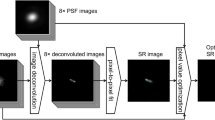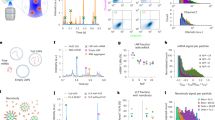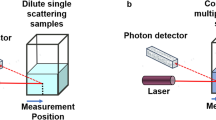Abstract
A DETERMINATION of the relative masses of π and μ-mesons by photoelectric measurement of track densities in an Ilford G5 plate was described by von Friesen and Kristiansson1. The measurements yielded results which deviated appreciably from 1.32, but no explanation of the anomaly could be given2. It now appears, however, that the matter can be explained as a photographic fading effect.
This is a preview of subscription content, access via your institution
Access options
Subscribe to this journal
Receive 51 print issues and online access
$199.00 per year
only $3.90 per issue
Buy this article
- Purchase on Springer Link
- Instant access to full article PDF
Prices may be subject to local taxes which are calculated during checkout
Similar content being viewed by others
References
Von Friesen and Kristiansson, Nature, 168, 377 (1951).
Gustafsson, Nature, 168, 377 (1951).
Albouy and Faraggi, J. Phys. et le Rad., 10, 105 (1949).
Author information
Authors and Affiliations
Rights and permissions
About this article
Cite this article
KRISTIANSSON, K. Influence of Fading on the Measurement of Mass Ratios in Nuclear Emulsions. Nature 173, 78–79 (1954). https://doi.org/10.1038/173078a0
Issue Date:
DOI: https://doi.org/10.1038/173078a0
Comments
By submitting a comment you agree to abide by our Terms and Community Guidelines. If you find something abusive or that does not comply with our terms or guidelines please flag it as inappropriate.



